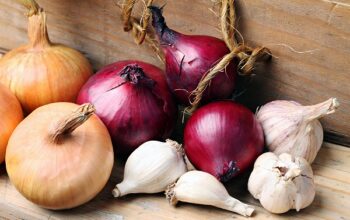Living with asthma can be challenging, but your diet plays a crucial role in managing symptoms and improving overall respiratory health. Research has shown that certain foods can help reduce inflammation, strengthen lung function, and provide natural relief from asthma-related complications.
Understanding Asthma and Diet Connection
Asthma is a chronic respiratory condition characterized by inflammation and narrowing of the airways, making breathing difficult. While medications are essential for management, dietary choices can significantly impact symptom severity and frequency. The connection between diet and asthma lies in the body’s inflammatory response and oxidative stress.
Key nutritional strategies can help:
- Reduce airway inflammation
- Boost immune system function
- Minimize allergic responses
- Support overall lung health
Top Foods for Natural Asthma Relief
1. Vitamin C-Rich Foods
Vitamin C is a powerful antioxidant that can help reduce inflammation and support respiratory health. Studies have demonstrated its potential to decrease asthma symptoms and improve lung function. Include these vitamin C-packed foods in your diet:
- Citrus fruits (oranges, lemons, grapefruits)
- Bell peppers
- Kale
- Broccoli
- Strawberries
2. Magnesium-Packed Nutrients
Magnesium plays a critical role in relaxing lung muscles and improving airflow. Research indicates that magnesium can help reduce the frequency of asthma attacks. Incorporate these magnesium-rich foods:
- Nuts (almonds, cashews)
- Seeds (pumpkin, sunflower)
- Leafy green vegetables
- Whole grains
3. Omega-3 Fatty Acids
Omega-3 fatty acids are renowned for their potent anti-inflammatory properties. Numerous studies have shown that these essential nutrients can help reduce asthma symptoms, particularly in children. Top sources include:
- Fatty fish (salmon, sardines, mackerel)
- Chia seeds
- Flaxseeds
- Walnuts
4. Additional Beneficial Foods
Several other foods offer remarkable benefits for respiratory health:
- Turmeric: Contains curcumin, a powerful anti-inflammatory compound
- Ginger: Helps reduce airway inflammation
- Apples: Rich in flavonoids that support lung function
Foods to Avoid
While focusing on beneficial foods, it’s equally important to minimize trigger foods that can exacerbate asthma symptoms:
- Processed foods
- Fried items
- Foods with artificial preservatives
- Known personal allergens
Practical Implementation Tips
Transitioning to an asthma-friendly diet doesn’t happen overnight. Consider these strategies:
- Gradually introduce new foods
- Keep a food and symptom diary
- Consult a nutritionist or healthcare provider
- Stay hydrated
- Maintain a balanced, varied diet
Important Considerations
While dietary changes can significantly help manage asthma, they should never replace prescribed medical treatments. Always consult your healthcare provider before making substantial dietary modifications, especially if you have severe asthma or other health conditions.
By adopting a strategic approach to nutrition and understanding how specific foods interact with your respiratory system, you can take meaningful steps toward natural asthma relief and improved overall wellness.





